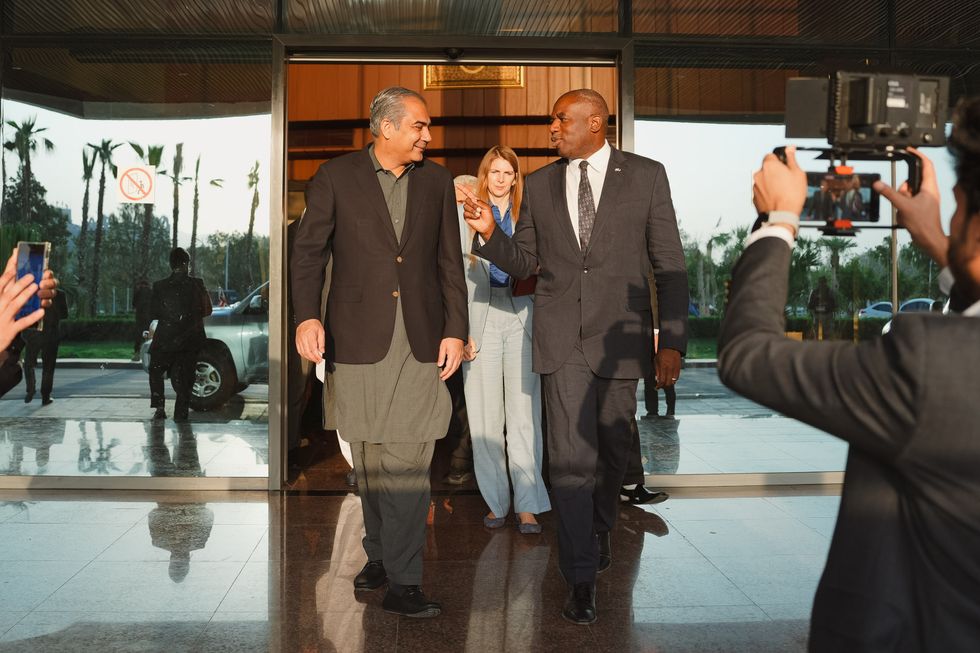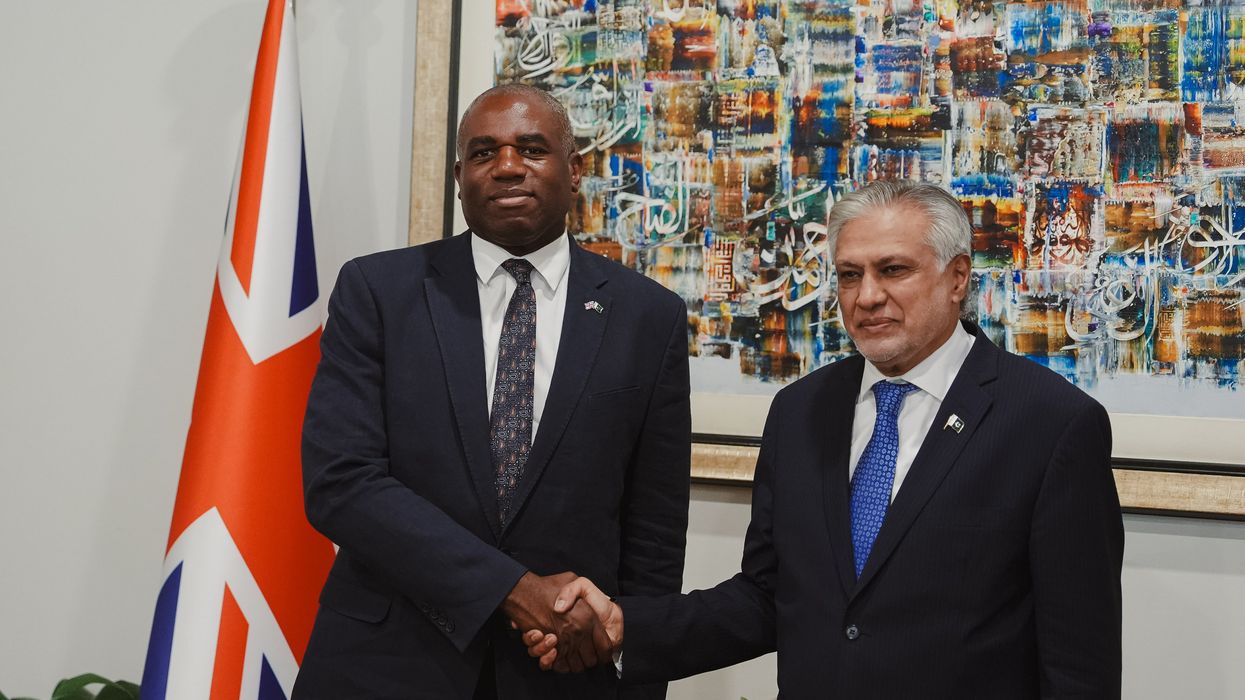FOREIGN SECRETARY David Lammy has described the India-Pakistan ceasefire as “fragile” as he travelled to Islamabad last Friday (16) for a quick visit following the recent conflict in the region.
Lammy met Pakistan’s senior cabinet ministers, including prime minister Shehbaz Sharif, foreign minister Ishaq Dar and interior minister, Syed Mohsin Raza Naqvi.
“It’s important the ceasefire holds, and I describe it as fragile, which is why I’m here,” Lammy told journalists on a call last Friday.
It was the first visit by a UK foreign secretary to Pakistan in the past four years.
Lammy also met consular staff who helped families as tensions escalated between India and Pakistan following a terrorist attack in Pahalgam last month.
India launched strikes against what it said were “terrorist camps” in Pakistan on May 7. Four days of intense tit-for-tat drone, missile and artillery exchanges with Islamabad followed. More than 70 people, including dozens of civilians, died on both sides.
New Delhi and Islamabad later agreed to a ceasefire after world leaders, including from the US and UK, said they spoke to the leadership of both south Asian countries.
“Both countries are long-standing friends of the UK,” Lammy said, adding, “I’ve been in close contact with my counterparts to caution against further escalation and push for a ceasefire.
“I’ve been in regular contact with counterparts in the United States, in Saudi Arabia, in UAE, in the European Union, to discuss how best the UK can work with India and Pakistan to avoid further conflict.
“But reaching a ceasefire is the important thing. And at the heart of sustaining the ceasefire is Pakistan and India having good relations themselves.”
He added, “I want to put on record how impressive I found the statesmanship, both of Pakistan and India, in de-escalating tensions and agreeing to a ceasefire.”

The foreign secretary condemned the terrorist attack in Indian Kashmir when tourists were targeted and shot dead.
He said, “I’ve been absolutely clear that the terrorist attack in Indian-administered Kashmir was horrific, and our thoughts are with those affected, their loved ones, and of course, the people of India.
“The UK government has always been clear in condemning terrorism of all forms, in no uncertain terms.
“And I called (India’s foreign) minister S Jaishankar to offer my condolences.
“In Pakistan, I have been discussing the issue of terrorism and how we deal with terrorism here in Pakistan. Of course, Pakistan, too, has been subject to horrendous terrorism in the recent past.
“The immediacy has been to get to a ceasefire and to see the de-escalation, and to build a horizon where there is confidence, where there is dialogue.
“But, absolutely, we have to bear down on the terrorist threat that exists and the militancy that goes alongside it.”
According to the Foreign, Commonwealth and Development Office (FCDO), in his meetings with senior counterparts, including the prime minister, Lammy highlighted the “immeasurable contribution” people of Pakistani descent have made to British life.
“We are friends with both countries. We have deep relations with both sides,” Lammy said.
In response to a question about India providing evidence of Pakistan’s involvement in the Pahalgam attack, the foreign secretary said, “I wouldn’t expect India to share their matters of national security with me, necessarily.
“What we’re here to do is to ensure and support friends, to maintain an enduring ceasefire. That’s the thrust of my conversations here in Pakistan, while recognising that terrorism does have to be dealt with, and there are concerns that there are groups here engaged in causing harm.”
According to the foreign secretary, he discussed a visit with Pakistan’s foreign minister. However, “it’s unfortunate that I’ve come in the shadow of conflict, although I’m pleased that we now have this fragile ceasefire in place”.
Lammy also met Dar and Raza Naqvi during his visit , and discussed “important links in the friendship between our countries, issues of trade, cooperation, culture, exchange, the support we give Pakistan on the climate crisis and development”.
Previously, rising tensions in the subcontinent (including the most recent one) led to protests and demonstrations in the UK, with migrants of both Indian and Pakistani origin having settled in many cities and towns across the country.
Leicester witnessed scenes of violence a few years ago, but Lammy said this time communities acted responsibly.
He told Eastern Eye, “This has been an unsettling period for communities up and down the country – we’ve got well over three million people who have their origins from India and Pakistan.

“We had oral questions in the House on Tuesday (13), and MPs took the opportunity to raise these issues. I know local authorities have also been engaged in communities broadly across the country.
“Of course, there has been anxiety and concern, but we do have communities that live side by side. Even though the images we’ve seen coming out of India and Pakistan have been deeply troubling, communities have acted responsibly and have actually been more focused on loved ones back in those countries than in disharmony within our own.”
He described how consular staff provided crucial support and advice to British citizens in Pakistan during the peak of recent tensions. “Between them, they’ve taken over 2,000 calls from people who were understandably very worried, particularly last weekend,” Lammy said.
He explained that they worked with airlines once Pakistan lifted its airspace restrictions, and helped people get emergency travel documents. “They also told me about how they helped people find access to pharmacies where they were running out of critical medicines because the airspace was closed,” Lammy said.
The FCDO said the foreign secretary has also been in “frequent contact with the government of India, having engaged with his counterpart last Thursday (15), and will look to travel to New Delhi soon to build on the strength of the UK-India relationship”.




